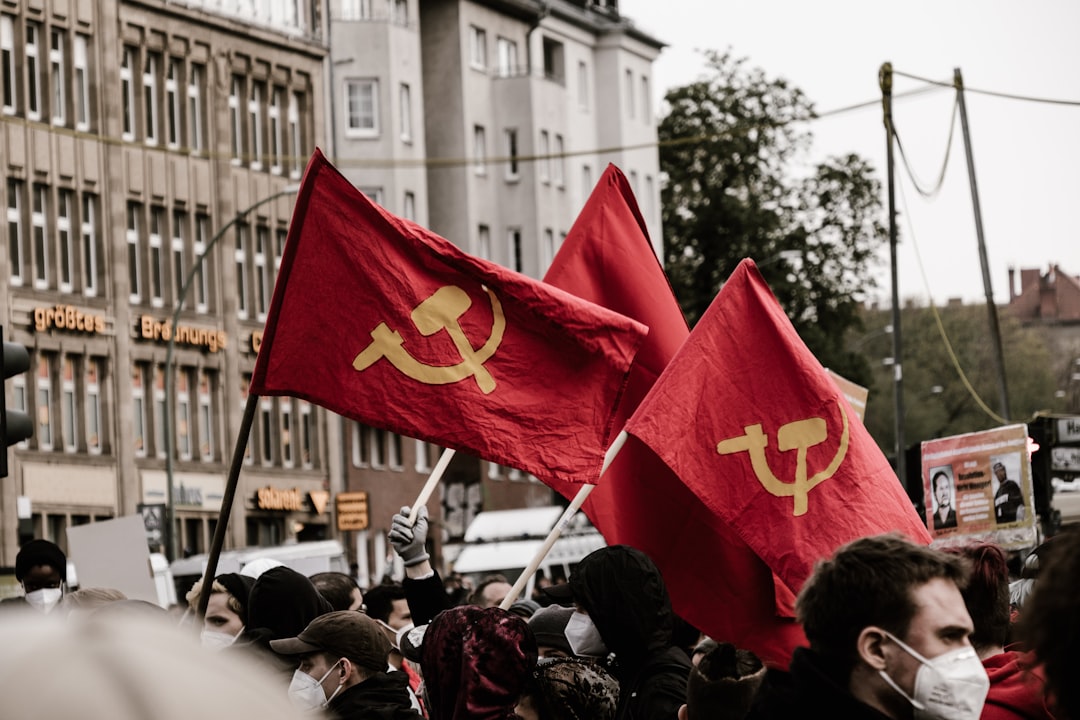Communism vs. Marxism
What's the Difference?
Communism and Marxism are closely related ideologies, but they have distinct differences. Marxism is a socio-economic theory developed by Karl Marx, which focuses on the struggle between the working class and the capitalist class. It analyzes the exploitative nature of capitalism and advocates for a classless society where the means of production are owned collectively. Communism, on the other hand, is a political ideology that aims to establish a society based on Marxist principles. It advocates for the abolition of private property, centralized control of the economy, and the establishment of a dictatorship of the proletariat. While Marxism provides the theoretical framework, communism represents the practical implementation of Marxist ideas.
Comparison

| Attribute | Communism | Marxism |
|---|---|---|
| Economic System | Collective ownership of means of production | Transitionary stage towards communism |
| Classless Society | Goal of eliminating social classes | Goal of eliminating social classes |
| State Control | Centralized state control over resources | Temporary state control during transition |
| Revolutionary Change | Requires a revolution to establish | Advocates for revolutionary change |
| Equality | Strives for equal distribution of resources | Advocates for equality among individuals |
| Political Ideology | Can be a political ideology | Can be a political ideology |
| Historical Context | Developed in response to industrial capitalism | Developed as a critique of capitalism |
| International Perspective | Advocates for global revolution | Advocates for international solidarity |

Further Detail
Introduction
Communism and Marxism are two ideologies that have significantly influenced political and economic systems around the world. While often used interchangeably, they have distinct attributes that set them apart. In this article, we will explore the key characteristics of communism and Marxism, highlighting their similarities and differences.
Communism
Communism is a political and economic ideology that advocates for the abolition of private property and the establishment of a classless society. It is based on the principles outlined by Karl Marx and Friedrich Engels in their seminal work, "The Communist Manifesto." In a communist society, the means of production are owned and controlled by the community as a whole, rather than by individuals or private entities.
One of the fundamental attributes of communism is the absence of social classes. In theory, everyone is equal, and wealth and resources are distributed according to each individual's needs. This principle aims to eliminate the exploitation of the working class by the bourgeoisie, the capitalist class that owns the means of production.
Another key aspect of communism is the central planning of the economy. In a communist system, the government or a central authority determines the allocation of resources and sets production targets. This approach aims to ensure that the needs of the entire society are met, rather than prioritizing profit-driven motives.
Furthermore, communism advocates for the international spread of the ideology, with the ultimate goal of achieving a global communist society. This aspect is often associated with the idea of proletarian internationalism, where workers around the world unite to overthrow capitalism and establish communism.
However, in practice, communism has been implemented differently in various countries, leading to variations in its attributes and outcomes. For example, the Soviet Union under Joseph Stalin adopted a highly centralized and authoritarian form of communism, while China under Mao Zedong implemented a version known as Maoism, emphasizing agrarian revolution and mass mobilization.
Marxism
Marxism, on the other hand, is a broader socio-political theory developed by Karl Marx. It serves as the foundation for communism but encompasses a wider range of ideas and analysis. Marxism seeks to understand and critique the capitalist system, highlighting the inherent contradictions and exploitative nature of the bourgeoisie-proletariat relationship.
One of the central tenets of Marxism is the labor theory of value, which argues that the value of a commodity is determined by the amount of socially necessary labor required for its production. This theory challenges the capitalist notion of profit, suggesting that surplus value is extracted from the labor of workers, leading to exploitation.
Marxism also emphasizes the importance of class struggle in driving historical change. According to Marx, history is shaped by the conflicts between different social classes, particularly the struggle between the bourgeoisie and the proletariat. This class struggle is seen as the driving force behind societal progress and the eventual transition to communism.
Additionally, Marxism analyzes the role of ideology in maintaining the dominance of the ruling class. Marx argued that the ruling ideas in society are the ideas of the ruling class, perpetuating the status quo and preventing the proletariat from realizing their true interests. This concept is known as ideological hegemony.
Moreover, Marxism recognizes the importance of material conditions in shaping society. Marx believed that the economic base, including the mode of production and the relations of production, determines the superstructure, which includes politics, culture, and ideology. This materialist perspective underscores the significance of economic factors in understanding social phenomena.
Similarities and Differences
While communism and Marxism share common roots and objectives, there are notable differences between the two ideologies. Communism is primarily concerned with the establishment of a classless society and the abolition of private property, whereas Marxism encompasses a broader analysis of capitalism and its contradictions.
Another distinction lies in their practical applications. Communism refers to the actual implementation of the ideology in specific countries, such as the Soviet Union or China, while Marxism is a theoretical framework that can be applied to analyze various social and economic systems.
Furthermore, communism often implies a more centralized and authoritarian form of governance, as seen in historical examples. Marxism, on the other hand, does not prescribe a specific form of government but provides a critical lens to understand power dynamics and class struggle.
Despite these differences, both communism and Marxism aim to address the inequalities and exploitations inherent in capitalist societies. They seek to create a more equitable and just system that prioritizes the needs of the working class over profit-driven motives.
Conclusion
In conclusion, communism and Marxism are closely related ideologies that have shaped political and economic systems worldwide. While communism focuses on the establishment of a classless society and the abolition of private property, Marxism provides a broader analysis of capitalism and its contradictions. Both ideologies share the goal of addressing the exploitative nature of capitalism and creating a more equitable society. However, communism refers to the practical implementation of the ideology, while Marxism serves as a theoretical framework for understanding and critiquing capitalist systems. By examining their attributes and differences, we can gain a deeper understanding of these influential ideologies and their impact on societies throughout history.
Comparisons may contain inaccurate information about people, places, or facts. Please report any issues.